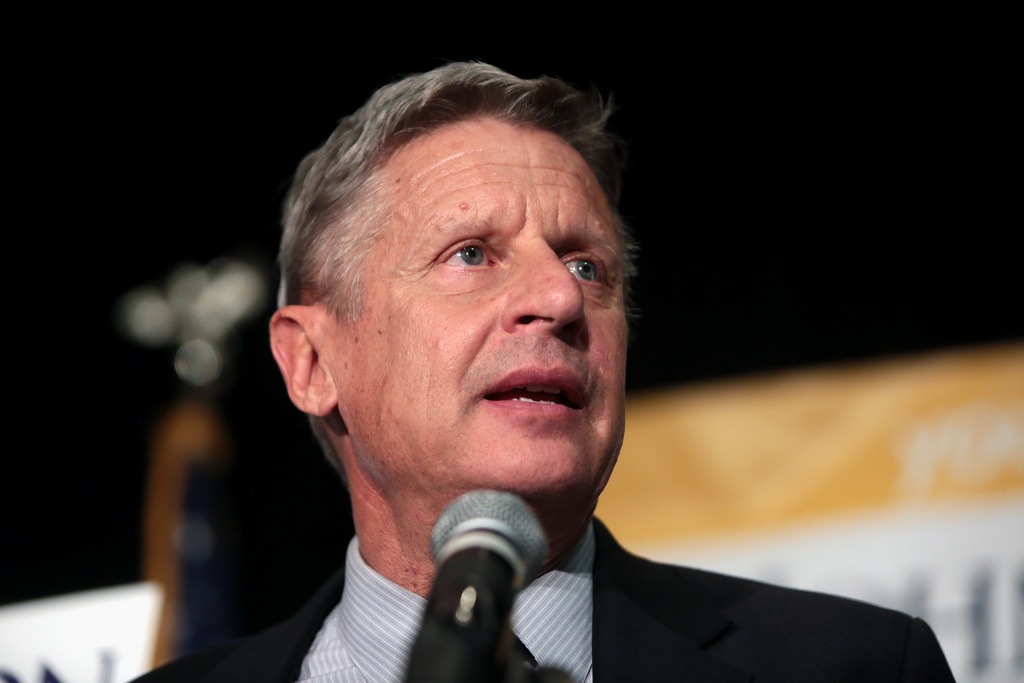When counted against the total number of votes cast for presidential candidates who qualified for Washington’s ballot this year, Libertarian Gary Johnson notched just over 5 percent.
Not only does that total put him well above all other third party candidates on the ballot this year; it alsoputs the Libertarians just past the 5 percent threshold for “major party” status in Washington state. With that status—granted to any party whose presidential candidate gets 5 percent or more of the vote—comes various state-sponsored amenities, including precinct elections, primary elections, and automatic inclusion on the state’s 2020 presidential ballot.
However, things are not that simple, and the complications surrounding the count could result in a lawsuit. Here’s why: While Johnson hit the 5 percent mark among ballots cast for official candidates, if write-in votes are counted, his tally appears to dip below the 5 percent threshold.
Dave Ammons, spokesman for the Secretary of State’s office, says state law is clear: Write-in ballots count when calculating percentages for major-party status. The official language in the code is “total votes cast,” which he says clearly indicates write-in votes. This year, perhaps as a result of the unpopularity of both major party candidates, write-ins spiked to 107,000, with another 43,000 not voting for any candidate. In 2012, only 47,000 people who turned in their ballots chose to write in a candidate or not cast a vote for any presidential candidate.
“I haven’t seen the final calculation yet, but once the 107,000 presidential write-ins are added to the tally for the seven tickets, it appears the Libertarians will drop below the 5 percent,” Ammons says.
The Libertarian Party is taking a different stance.
Michael Pickens, a former state party chairman who is still active in leadership, tells Seattle Weekly that by the party’s reading of state law, only write-in votes cast for people who filed as official write-in candidates should be considered legitimate votes. “According to their own [laws], the write-in vote should not count unless the write-in candidate filed a write-in campaign,” he says.
This is tricky territory. The state does allow people to file as an official write-in candidate. However, election offices do not bother to see how many write-in votes those “official” candidates get compared to, say, how many people wrote in Mickey Mouse, unless the total number of write-in ballots exceeds the number of ballots cast for the top on-ballot vote-getter. The logic here is that it would be a complete waste of time to go through and read every write-in vote when there is no chance it could sway the election.
Even stranger, even if the state did count the write-in ballots, it wouldn’t actually make a distinction between write-ins cast for candidates who filed with the state as write-ins and those who didn’t.
“The law makes no distinction between votes cast for an officially declared candidate and everyone else (like, say, Bernie Sanders or Paul Ryan this year),” Ammons says over email. “There were 62 officially declared candidates or tickets this year, including Evan McMullin.”
If the Secretary of State does indeed deny the Party’s major-party status (a decision is due next week) and the Party does indeed sue, then it will be up to a really smart judge to figure all this out.
Pickens says you can count on it.
“If Secretary of State Kim Wyman decides to not give us ballot access, we are prepared to move forward with a lawsuit. Precedent has already been set in the way they count votes. Now when we have worked so hard over the past 40 years to get to this mark, to get to major party status, to change the rules is very unreasonable.”
dperson@seattleweekly.com








